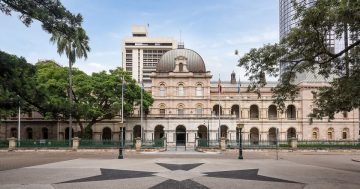
Premier Steven Miles said Mr Forde’s report would strengthen Queensland’s integrity framework and provide greater confidence to the public in how complaints were managed across government. Photo: Scotto72.
The Queensland Government has begun foundational work on establishing a complaints clearinghouse in its efforts to streamline public sector accountability.
Originally recommended by Professor Peter Coaldrake’s ‘Let the sunshine in’ report in 2022, the state has committed an initial $6.22 million to a project team in charge of its creation.
Former District Court judge Michael Forde delivered a project overview report to the government earlier this week. In it he outlines three design options for a technologically enabled clearinghouse, which were inspired by approaches in other jurisdictions and Queensland’s own complaints landscape.
Premier Steven Miles thanked Mr Forde for his independent assessment and recommendations, which his government has begun work on implementing.
“My government is serious about this,” said Premier Miles. “We know that this type of significant change will have a cross government and community impact, so it is important that we get this right.”
The three design options Mr Forde lays out in his report involve:
- Extending the responsibilities of one of Queensland’s integrity bodies, providing additional technology and resources
- Extending the existing complaints framework across government using existing technology
- Establishing a new complaints management office, supported by technology and resources.
Each option prioritises a cost-effective complaints management process, that reduces solution timeframes and is informed by the complainant, staff and consumer perspectives. The report also considered perspectives and concerns raised in Professor Coaldrake’s report.
In light of these priorities, Mr Forde recommended the first option be implemented.
“This is a large and complex project, and it is important we get this right,” said Mr Forde. “This is why it is important for government to implement changes in stages to provide an opportunity to review, learn and assess risk for this key integrity reform.
“I commend the Queensland Government for providing funding to further scrutinise the recommended option and undertake a detailed investigation of legislative and other impacts.
“Improving complaints management is an important measure and will have a significant positive impact on how government services are provided to Queenslanders.”
Professor Coaldrake’s review of culture and accountability in the Queensland public sector delivered its final report in June 2022.
One of its core recommendations was the establishment of a single clearinghouse for complaints, which has the capacity for complainants and agencies to track progress and outcomes.
His final report also recommends the Crime and Corruption Commission (CCC) to avail itself of responsibilities assumed by the clearinghouse, so that it can “redouble its attention on serious corruption and major crime”. However, it stipulates complaints against senior public sector employees that the CCC devolves, must include ongoing oversight by the Public Service Commission and an independent director-general.
In its submission to the review, the CCC expressed the view that a clearinghouse was unlikely to be helpful, would create a further layer of review, and a potential appeal process for decisions.
Professor Coaldrake considered this a “pessimistic view, and not one which serves the interests of consumers as much as it does the preferences of the current stewards of the system”.
“The review is cognisant of the scale of this operation and the time that will be taken to establish its operations,” reads the report.
“A complicating factor is the tracking and visibility of a complaint (both from a user and operator perspective) once it is in the ‘patchwork’, from where it begins to where it ends up, and which policies, directives and reporting obligations are enlivened once it enters the tangled web of Queensland’s integrity system.
“In light of these issues, the concept of having a single body responsible for the assessment, sifting, and delegation of matters to the appropriate agency or body is appealing.
“Having ‘one door to government’ for complaints takes away the onus which is currently placed on complainants to navigate their way through a system which can be very baffling.”











